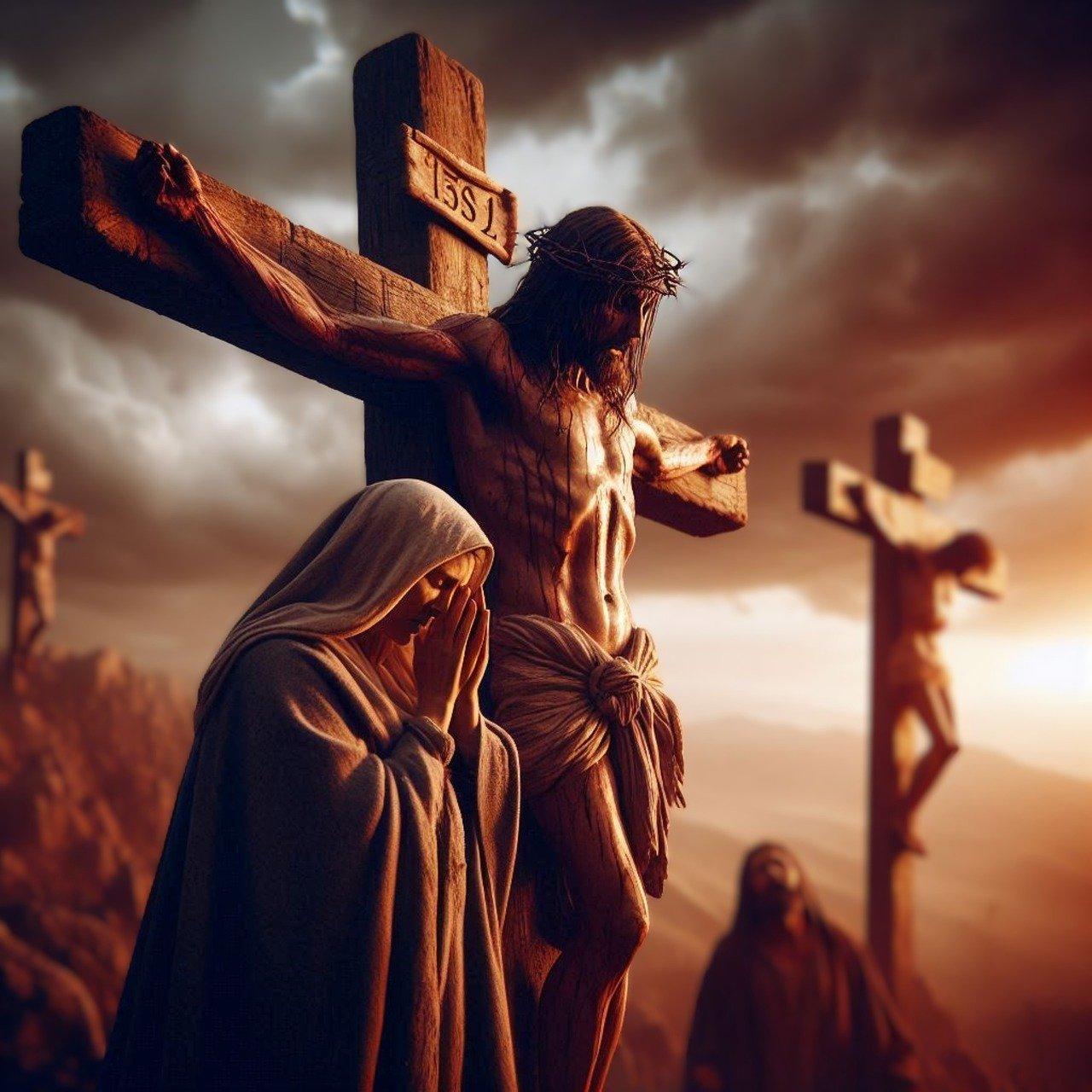As we learn how to pray as Christians, we realize that God has blessed us with an expansive family. It is a family that includes those on earth and those already in eternity. It is a beautiful and mystical reality. It is the People of God united in one Body of Jesus Christ. And we’re a part of it.
In this mystical body, we have older brothers and sisters from every race, culture, socio-economic status, language group, and spirituality. The body not only covers the earth, but also time itself. It encompasses people of every generation.
Jesus Christ is the Head of this universal, timeless family. As the Head, he has given his mother a place of preeminence. Mary is to his right. She is the mother of all believers. As such, our spiritual tradition calls her “the neck” of the Body of Christ. While such a designation may sound peculiar to us today, it held historical value in previous contexts and still has some teaching value for us today. The image of the neck shows us Mary’s place between her divine Son and all those who believe.
Since Mary has been given such a place in the body of believers, it is appropriate that we turn to her and ask for her supplication and spiritual assistance. Mary is our greatest help as we seek to draw closer to Jesus Christ.
As we accept the place of Mary in the Body of Christ, we are also called to also open our hearts and accept her into our own lives as well. As we permit ourselves to feel her maternal warmth and encouragement in our daily lives, we naturally begin to talk with her and place our petitions before her. What can seem odd in the abstract becomes the most natural, comfortable thing in actual practice. When we pray to Mary, we are children speaking to their mother.
And so, our prayers to Mary are not only communal but also personal. Our personal prayers, however, are shaped and molded by the public prayers of the Church. We rely on the set prayers of the Church to guide us as we talk to Mary.
All our prayers to Mary are also prayers to the Lord Jesus. The head can never be separated from the neck. The Son can never be separated from his mother. When we pray to Mary, we have the added spiritual benefit and consolation of knowing that our prayers are also being heard and honored by the Lord Jesus.
The Catechism of the Catholic Church teaches us: “Beginning with Mary’s unique cooperation with the working of the Holy Spirit, the Churches developed their prayer to the holy Mother of God, centering it on the person of Christ manifested in his mysteries.”
Mary always serves her Son. She is not only his mother, but his first and most valued disciple. We can trust Mary. When we pray to her, she adds her prayers to ours, and places them before her divine Son.
When Mary visited her kinswoman Elizabeth, the older woman praised Mary, exclaiming: “Blessed are you among women, and blessed is the fruit of your womb. And why has this happened to me, that the mother of my Lord comes to me?”
Mary, however, did not hold that praise for herself. She didn’t gloat or keep the adulation for herself. Mary immediately turned and gave the praise to God: “My soul magnifies the Lord, and my spirit rejoices in God my Savior.”
In such a rich biblical context, we see how our prayers are accepted, handled, and raised up to the Lord by Mary. She is the true handmaid of the Lord. She joyfully serves the Lord. There is no cause for concern in praying to her.
The Catechism speaks of the two movements of our prayer. The first is the praise Mary gives to the Lord. The second is our trust and comfortability with Mary because she gave her son his humanity.
Here’s the Catechism’s full explanation: In countless hymns and antiphons expressing this prayer, two movements usually alternate with one another: the first ‘magnifies’ the Lord for the ‘great things’ he did for his lowly servant and through her for all human beings. The second entrusts the supplications and praises of the children of God to the Mother of Jesus, because she now knows the humanity which, in her, the Son of God espoused.”
In these ways, we are called to put down our defenses. There is no idolatry here. There is only a mother who has been given to us and who wants to help us love her divine Son.
To receive free, daily reflections from Father Kirby, please visit: dailydiscipleship.org.














